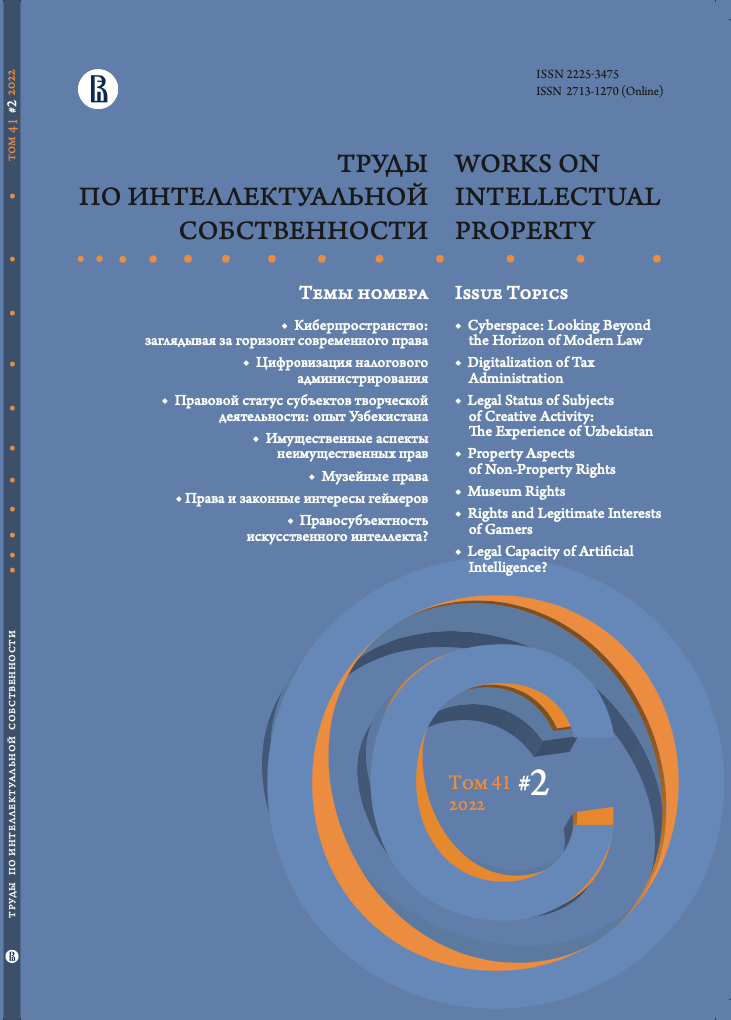EVALUATION OF THE EFFECTIVENESS OF INFORMATION TECHNOLOGIES IN TAX ADMINISTRATION: LEGAL FRAMEWORK
Abstract
The goal of the study is to develop an evaluation methodology of the effectiveness of information technologies in tax administration. To achieve the goal, legal frame- work of the relevance of the use of information technologies to improve the methods of tax administration was defined. The framework of the study is concerned with the concept of effective tax administration as combining the efficient and high-quality execution by the tax authority its functions, accompanied by the thrifty use of public funds. The study shows the negative consequences of arbitrary evaluation of the effectiveness of tax administration using information technology. The importance of a complex assessment of the effectiveness of tax administration using information technology from a theoretical and practical point of view as an opportunity for a more well-structured and fundamental approach to the analysis of the effectiveness of tax administration using information technology has been proved. The criteria for assessment of the effectiveness of tax administration using information technology were developed and grounded. Effectiveness criteria are economy, operability, and quality. The content of criteria was disclosed and the significance of them was defined. By using the developed methodology, the effectiveness of the Federal Tax Service of the Russian Federation of tax administration using information technology was assessed. It is concluded that tax administration using information technology can be characterized as effective. Among the measures to further improve effectiveness are improvement of legal regulation, development of more advanced methods for ensuring information security, tax incentives for businesses using information technology.


